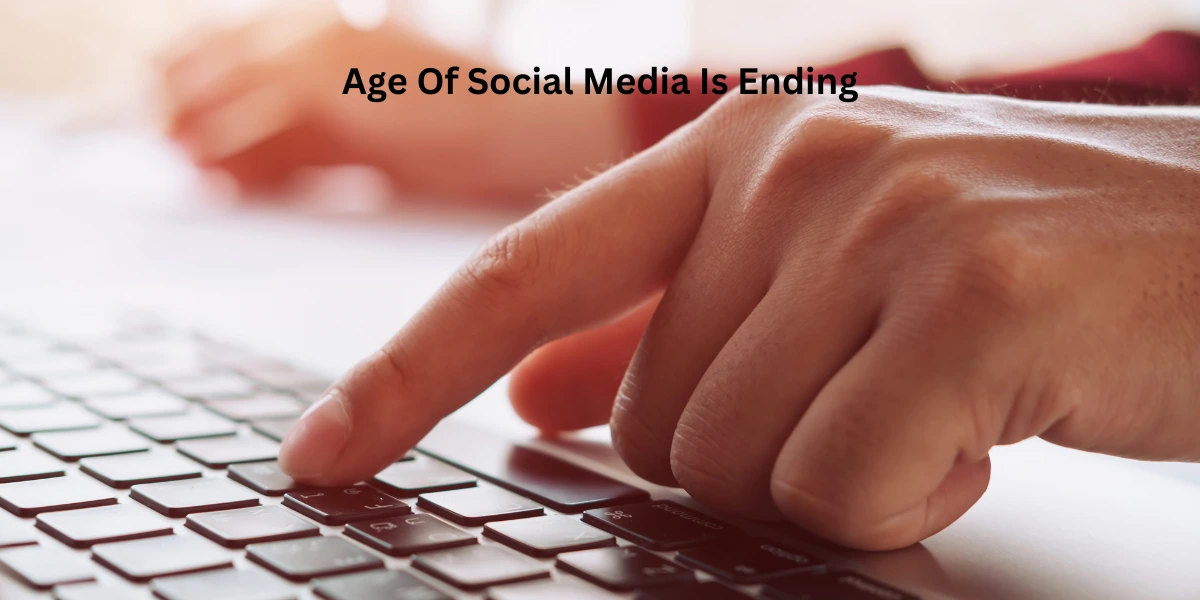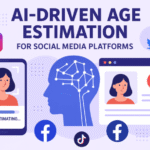
Is the Age of Social Media Ending?
Table of Contents
Table Of Content
- Introduction: Is the Age of Social Media Ending?
- Are Millenials and GenZ pulling away from Social Media?
- Changing Trends: Social Media is not the source of validation it used to be
- Declining Social Media Use Due to Privacy Concerns
- Reducing Use of Social Media: Monitoring Screen Time, Mental Health, and Drama
- Age Of Social Media Is Ending Regulatory Changes and Their Implications
- Alternatives to Social Media and the Future Beyond It
- Is Social Media Losing Relevance or Just Transforming
- Conclusion: The Future Age Of Social Media Is Ending
- Frequently Asked Questions (FAQs)
Introduction: Is the Age of Social Media Ending?
Age Of Social Media Is Ending has reshaped the digital landscape for more than a decade – how we connect, communicate, or consume content. But its golden days could be over because its users are getting tired of the negative impacts it brings to life; these are in terms of privacy concerns, distorted truths, and mental health issues. With changes in preferences and emerging technologies, the way people interact online is changing, which could mean the beginning of the end of traditional social networking sites.
Are Millenials and GenZ pulling away from Social Media?
Are the younger generations pulling away? Millennials and GenZ folks have mixed feelings about social media. While they acknowledge the role of these platforms in staying connected and informed, many feel social media is a reason for stress and negativity.
Privacy concerns, the pressure to present a perfect image, and the addictive nature of these platforms are major reasons they’re pulling away.
Younger users prefer private and niche-type platforms, such as messaging apps or interest-based communities, where they can have more authentic and less overwhelming experiences. This is reflective of their desire to engage in deeper connections and better digital practices.
However, young individuals might be pulling away from the entertainment side of social media but they will probably still use it for informational purposes and to keep a check on what is going on around the world. This is the generation that has grown up with social media instead of libraries and are curious about a number of topics.
Changing Trends: Social Media is not the source of validation it used to be
Preferences and trends are changing, and social media is no longer the ultimate validation resource for many. People, especially youngsters, are breaking free from the continuous requirement of likes, comments, and shares. They care less and less about showing off their personal life to others and flaunting fancy restaurants or cafes they go to. Instead the young smart individuals are now focusing on the real things.
Today, they are shifting their focus to having practical experiences, a meaningful relationship, and private conversations over and above public rating. This change has heralded increasing consciousness for the mental health effects of seeking validation through social media platforms and a wish to find self-worth out of this model.
Declining Social Media Use Due to Privacy Concerns
The drive away from traditional social media comes from users’ privacy concerns. Major data breaches, misuse of personal information, and intrusive tracking behavior have made people so cautious that they are turning to private messaging applications, encrypted platforms, or even taking a break from social media. This shows the growing demand for safer spaces online, where a need for privacy is respected.
Reducing Use of Social Media: Monitoring Screen Time, Mental Health, and Drama
Indeed, social media use is losing altitude among people who have become cognizant about its influence on their well-being. Among the rationales for reducing their excessive screen time is cutting down on distractions that may stay in one’s focus, thus affecting productivity. Other valid reasons include mental health-related issues such as anxiety, comparison, and burnout. The negative social media drama and negativity have also driven people to the simpler, private online intercommunications. These trends reflect an increasing interest in balance and in healthier digital habits.
Age Of Social Media Is Ending Regulatory Changes and Their Implications
Regulatory changes on social media refer to new laws and rules intended to control how platforms operate. These changes often revolve around issues like privacy protection, content moderation, and user safety. For instance, the GDPR in Europe forces companies to work to protect all that data. A new regulation might necessitate a platform to remove harmful content faster or prevent misinformation from spreading. These regulations could decrease big technology companies’ power but can also be seen to limit free speech and increase compliance costs.
Alternatives to Social Media and the Future Beyond It
If the age of social media ends, it might be replaced by other platforms that respect people’s privacy, security, and reality-based communication, based on applications like WhatsApp or Telegram, or on decentralized networks. Alternatively, there could be an upsurge of niche online communities focused on specific interests. In the future, people might spend more time in virtual spaces like virtual reality (VR) or augmented reality (AR), providing immersive ways for them to interact without traditional social media. Interactions online could go towards the mini, personal, and secure settings instead of using the mainstream platforms.
Is Social Media Losing Relevance or Just Transforming
The above reasons notwithstanding, social media is not necessarily dying, but rather its usage is changing. These platforms are still greatly influential, even when fewer people use them as much or in similar ways. New features and privacy measures keep evolving as well as other ways to engage their users, but the nature of their usage is changing. More people are focusing on their private interactions, or rather niche platforms than mainstream social media. Therefore, what’s happening is that the grip on mainstream social media is loosening, but it’s not disappearing; more users are seeking a healthier alternative.
Conclusion: The Future Age Of Social Media Is Ending
Social media isn’t disappearing, but rather it’s changing. According to how people shift toward private, secure, and niche platforms, how we communicate online is shifting. However, its power still prevails, but social media is no longer the single dominant force that it used to be. Digital life will likely evolve into a more balanced phenomenon with healthier and more meaningful connections, as well as alternatives that make privacy and well-being paramount.
Read Also: Why Do People Post Everything on Social Media
Frequently Asked Questions (FAQs)
Younger users tend to use social media in an engaging heavy manner, whereas older users are mostly seen using it for communication purposes or just to stay updated.
We would need cultural shifts away from constant online interaction as well as widespread shifts to alternative digital platforms.
Social media may cause problems such as mental problems, privacy concerns, misinformation, and addicting activity.
Social media originally intended to unite people, share experiences, and provide a more accessible means of communication.




